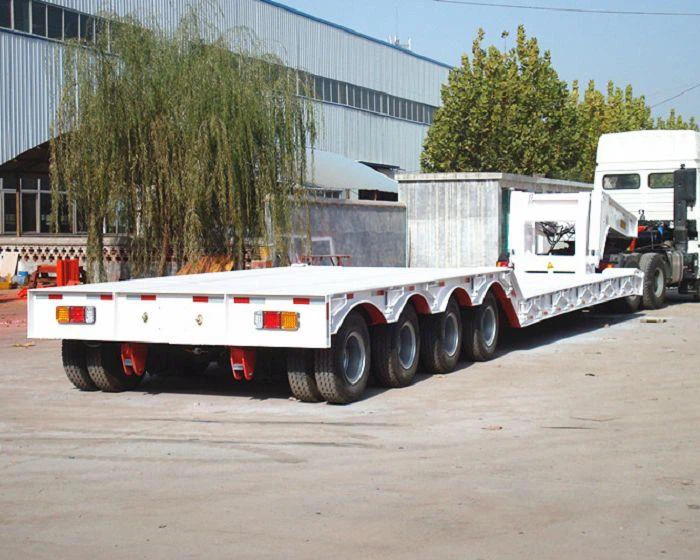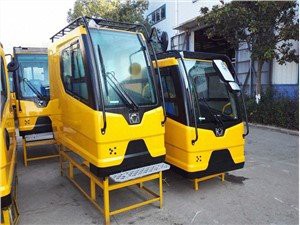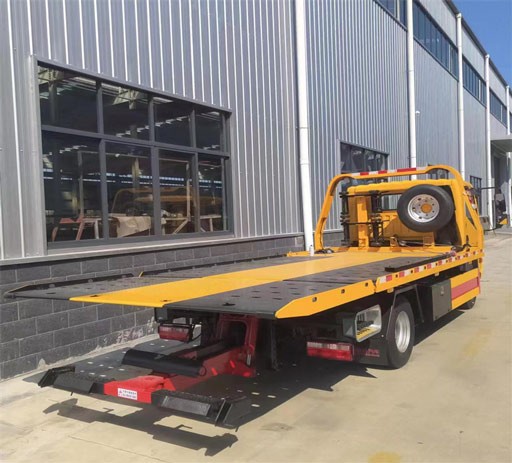Electric Small Trucks: The Future of Urban Transportation

Introduction to Electric Small Trucks
The rise of electric vehicles has transformed the automotive industry, and small trucks are no exception. Electric small trucks offer eco-friendly solutions without sacrificing efficiency or utility. These vehicles are designed for urban environments, making them perfect for deliveries, landscaping, and small businesses. As cities become more congested and pollution levels rise, electric small trucks provide a sustainable alternative that meets the demands of modern transportation. In this article, we will explore the benefits, models, and future of electric small trucks.
Understanding Electric Small Trucks
What are Electric Small Trucks?
Electric small trucks are lightweight vehicles powered entirely by electricity. They come in various sizes and configurations, primarily designed for transportation in urban settings. Unlike traditional trucks that run on diesel or gasoline, electric small trucks utilize electric motors and batteries, resulting in zero emissions.
Key Characteristics of Electric Small Trucks
- Zero Emissions: Electric small trucks produce no tailpipe emissions, contributing to cleaner air in cities.
- Cost-Effective: Reduced fuel and maintenance costs make electric trucks more economical in the long run.
- Surprisingly Spacious: Despite their smaller size, these trucks often feature spacious cargo areas for various needs.
- Enhanced Maneuverability: Smaller size makes them easier to navigate through traffic and tight spaces.
Benefits of Using Electric Small Trucks
Environmental Impact

One of the most significant benefits of electric small trucks is their positive effect on the environment. With global warming and climate change on the rise, reducing vehicle emissions is crucial. Electric small trucks produce zero emissions and contribute to reducing air pollution in densely populated areas.
Cost Efficiency
Electric small trucks can save owners considerable money over time. With lower fuel costs, no motor oil changes, and fewer mechanical components, the overall operation costs are significantly lower compared to traditional models. Companies that switch to electric can also take advantage of various tax credits and incentives, potentially offsetting the higher initial purchase price.
Reduced Noise Pollution
Electric small trucks operate more quietly than their gas or diesel counterparts. This attribute makes them ideal for urban settings where noise pollution is a concern. Businesses that use electric vehicles can enhance the quality of life in their communities by reducing noise levels associated with deliveries and transportation.
Regulatory Advantages
As governments around the world strive to meet emission reduction targets, many offer incentives for electric vehicle (EV) adoption. Electric small trucks might qualify for tax breaks, rebates, and reduced registration fees, making them a financially attractive option for businesses.
Popular Models of Electric Small Trucks
1. Rivian R1T
Rivian’s R1T has garnered attention with its impressive off-road capabilities and strong performance. It’s equipped with a dual-motor system that provides all-wheel drive, making it a versatile choice for urban and rugged terrains. The R1T also boasts a range of over 300 miles, making it practical for longer trips.
2. Ford F-150 Lightning
The Ford F-150 Lightning transforms the classic pickup truck into an electric powerhouse. It offers a variety of configurations, impressive towing capacity, and a spacious cabin. Additionally, it features unique functionalities, such as vehicle-to-load capabilities, allowing drivers to power tools or appliances directly from the truck.
3. Chevrolet Silverado EV
The Chevrolet Silverado EV aims to combine utility and sustainability. With a range of over 400 miles and fast-charging capabilities, it positions itself as a reliable option for commercial use. Its spacious bed and flexible cargo solutions make it appealing for various applications, from delivery services to landscaping.
4. Hino XL Series Electric Truck
As part of their commitment to sustainability, Hino Motors has introduced the XL series of electric trucks. These trucks are built for heavy-duty work, with impressive payload ratings and robust performance metrics. Hino’s focus on reliability makes their electric trucks ideal for businesses that require extensive hauling capabilities within urban environments.
5. Workhorse W750
Workhorse’s W750 is a purpose-built electric delivery truck that focuses on maximizing efficiency for urban deliveries. With an impressive range, ample cargo space, and technology to monitor performance, this truck is an excellent choice for small businesses seeking green transportation solutions.
How to Choose the Right Electric Small Truck
Assess Your Needs
Before purchasing an electric small truck, assess your unique needs. Consider the following:
- Payload Capacity: Determine how much weight your truck needs to carry regularly.
- Range: Evaluate the distance you typically travel daily and compare it to the truck’s range.
- Charging Options: Assess charging capabilities at your home or business. Look into public charging station availability if necessary.
- Usage Type: Identify whether you need a vehicle for delivery, transporting goods, or working in construction environments.
Budget Considerations
Electric small trucks come with different price points. Factor in the potential savings from fuel and maintenance when comparing initial costs. Also, consider tax incentives, rebates, and financing options that can ease the financial burden.
Brand Reputation and Support
When investing in an electric vehicle, consider the manufacturer’s reputation. Research customer reviews, warranty offerings, and the availability of customer service and support. A reputable brand will provide peace of mind and trustworthy service in case of future issues.
Test Drive and Experience
Before finalizing your choice, arrange a test drive. Experiencing the truck’s comfort, handling, and technology first-hand will help ensure you make an informed decision. Make sure to check out essential features like cargo space and technological integrations.
Charging Infrastructure for Electric Small Trucks
The Importance of Charging Stations
For electric small trucks to be a feasible option, a robust charging infrastructure is critical. Businesses and consumers alike benefit from a variety of charging stations, from home charging setups to public stations. Knowing the charging options available can influence purchasing decisions significantly.
Types of Charging Stations
| Charging Type | Charging Speed | Common Use |
|---|---|---|
| Level 1 | 4-6 Miles of range per hour | Residential Areas |
| Level 2 | 10-60 Miles of range per hour | Public Charging Stations, Commercial Properties |
| DC Fast Charging | 100-400+ Miles of range in 30 minutes | Highway Rest Areas, Major Urban Centers |
Home Charging Solutions
Installing a home charging station provides convenience, allowing electric small truck owners to charge their vehicles overnight. Also, residential installations can help offset reliance on public charging stations and add value to the property.
Maintenance of Electric Small Trucks
Lower Maintenance Needs
With fewer moving parts than internal combustion engines, electric small trucks generally require less maintenance. However, basic upkeep remains essential:
- Battery Maintenance: Monitor battery health and ensure proper charging practices to maximize lifespan.
- Tire Maintenance: Regularly check tire pressure and tread depth for safety and efficiency.
- Brakes: Electric trucks often utilize regenerative braking, which decreases wear on brake components but still requires occasional inspections.
Scheduled Software Updates
Many electric trucks come equipped with advanced software systems. Keep your vehicle updated with the latest software upgrades to ensure optimal performance and functionality. Engage with the manufacturer’s app or website to stay informed about updates.
The Future of Electric Small Trucks
Technological Advancements
The future of electric small trucks hinges on advancements in battery technology, autonomous driving, and software integration. Innovations in charging technology will also continue to enhance the infrastructure needed for widespread adoption.
Market Trends
As consumer demand for electric vehicles increases, the market for electric small trucks is expected to flourish. More manufacturers are investing in electric technology, leading to a broader range of options and price points. This trend is likely to result in improved performance features, range, and affordability.

Legislation and Government Incentives
Government policies encouraging electric vehicle adoption will play a vital role in the future of electric small trucks. Incentives may include grants for businesses to invest in electric fleets or rebates for electric truck purchasers. Collaborative urban planning strategies can also enhance the charging infrastructure in cities to meet growing demand.
FAQs about Electric Small Trucks
1. Are electric small trucks suitable for long-distance travel?
Yes, but it’s essential to consider the truck’s range and charging infrastructure along your route. Many electric small trucks now offer ranges exceeding 250 miles.
2. How long does it take to charge an electric small truck?

Charging times vary by charging station type; Level 1 chargers take several hours, Level 2 chargers can charge in several hours, while DC Fast Chargers can recharge 80% of the battery in about 30 minutes.
3. What are the maintenance costs for electric small trucks?
Electric small trucks generally have lower maintenance costs because they have fewer moving parts. Expect to invest in battery care, tire maintenance, and occasional software updates.
4. Can I use an electric small truck for commercial purposes?
Yes! Many businesses are adopting electric small trucks for delivery, landscaping, and other light-duty work due to their efficiency and lower operating costs.
5. Are there incentives available for buying electric small trucks?
Many governments provide financial incentives, including tax credits, rebates, and grants, to encourage the adoption of electric vehicles, including small trucks.
6. How does the resale value of electric small trucks compare to traditional trucks?
Resale value can vary, but electric small trucks are gaining popularity, which may enhance their resale value over time. Factors like battery condition and vehicle technology will influence their worth.
